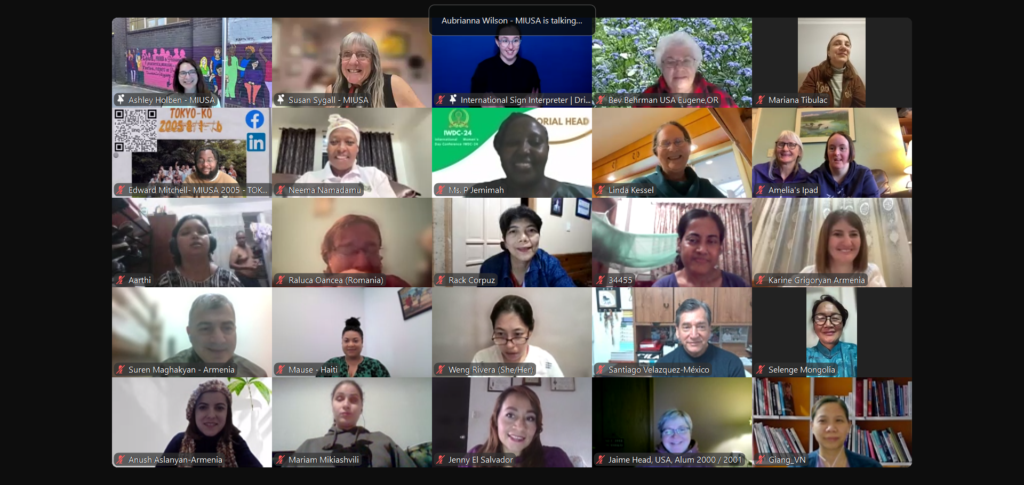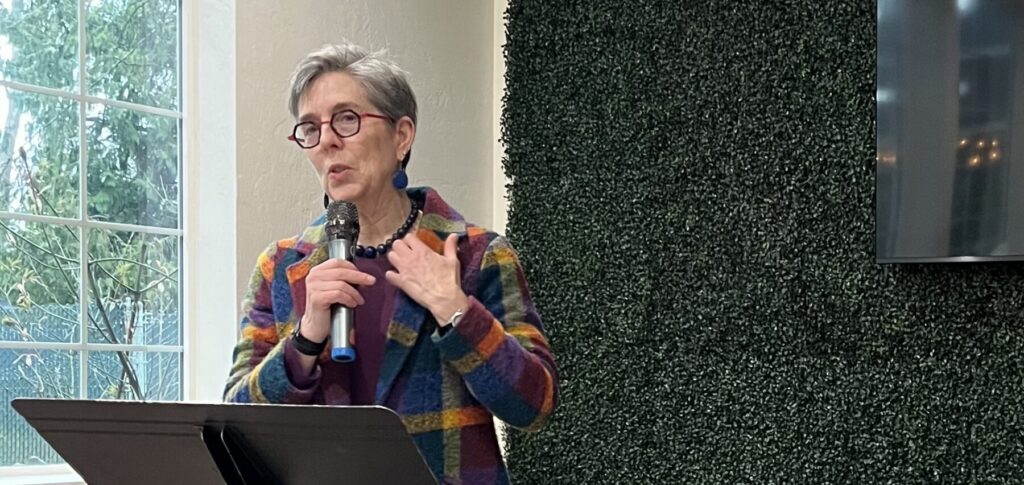By Ashley Holben, Program Specialist
How do you get people with disabilities to the table? And is simply getting them to that proverbial table enough? What’s the next step?
These are some of the questions we were thinking about when, for the first time (hopefully the first of many!), MIUSA had the opportunity to attend the Gender 360 Summit hosted by FHI 360, a member of MIUSA’s EDDI initiative.
The June 2018 Summit, which focused on “positive girl and boy development,” modeled several examples of disability access and inclusion that we would encourage any organization to apply to its own events and programs. To highlight a few:
- Making space for disabled people’s perspectives at the event by inviting participants with disabilities to not only attend, but to present, facilitate, and contribute. Rather than hope that disabled people might happen to find out about the Summit and register, FHI 360 proactively reached out to organizations and institutions connected to a wide network of disabled leaders. For example, they asked MIUSA to connect them to disabled women activists from the Global South who could speak to girls’ empowerment (which led to their inviting our fabulous WILD alumna Mause-Darline Francois from Haiti!) With connections at Gallaudet University, they were also able to reach several Deaf leaders working in international development whose contributions to the Summit cannot be overstated.
- Recognizing disability as part of diversity. The Summit was thoughtful and intentional about weaving disability into broader discussions on diversity, inviting Deaf and disabled leaders to present alongside non-disabled guests in a Fireside Chat, Lightning Talks, and throughout. Often, disability was just one of several intersecting identities such as gender, race, and national origin that factored into the dialogue; this intersectionality enhanced the overall experience of the Summit.
- Arranging to fund disability-related accommodations. FHI 360 partnered with Chemonics to sponsor ASL interpreter services, which I thought was an innovative approach to ensure access. As an important follow-up step, organizers asked for feedback from disabled participants on the effectiveness of the event, including disability-related accommodations.
These practices brought people with disabilities to the forum and share their experiences and perspectives, but what’s next? Perhaps future Summits will include people with disabilities not just as attendees and presenters, but as event organizer staff and volunteers.
In the coming weeks, MIUSA and other Gender 360 Summit attendees will fine-tune a Summit Outcomes document to share recommendations and lessons learned. To be sure, this will include best practices for disability inclusion that the field can adopt to ensure that its collective efforts towards positive youth development – for youth of all genders – are accessible to youth with disabilities.
Read a blog post from Cultural Practice about disability inclusion at the Gender 360 Summit with comments from MIUSA staff.





